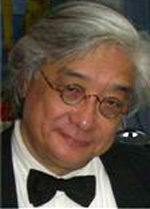Maurits G.T. Kwee, Ph.D.
Clinical Psychologist
Faculty Member of the Taos Institute PhD-Program, USA
Founder of the Institute for Relational Buddhism, Netherlands
Emeritus Hon. Professor Universidad de Flores, Argentina
Former Visiting Prof. and Research Fellow Waseda University, Japan
Facebook: @Buddhism 4.0, @Relational Buddhism, @Maurits Kwee
Twitter: @RelationalBuddh and @MauritsKweePhD
Web: relationalbuddhism.org
Maurits Kwee died Dec. 3, 2021. He will be missed and his impact will be remembered.
Prof. Kwee graduated at the Radboud University in Nijmegen and earned his Ph.D., a doctorate in Medical Science, at the Erasmus University in Rotterdam, Netherlands. He was an Emeritus Hon. Professor at the University of Flores, Argentina, a Faculty Member of the Taos Institute Ph.D.-Program, USA, and a Founder of the Institute for Relational Buddhism, Netherlands. Formerly, he was a Visiting Research Fellow at Waseda University, Japan, a past-President of the Transcultural Society for Clinical Meditation, a non-profit organization based in Japan, of which he also was a co-founder (with Prof. Yutaka Haruki), and used to serve as a Board Member of the Society for Constructivism in the Human Sciences.
Dr. Kwee was foremost a practitioner, lecturer and supervisor of Rational-Emotive Cognitive Behavior Therapy in the Netherlands. He was a “scientist-practitioner” for 25 years in a psychiatric facility where he functioned as a “chef de clinique” (head of department) of 21 beds, an inpatient group setting for people with severe anxiety and depressive disorders. Besides, he was also engaged in private practice for outpatients during his whole professional life. In both settings he treated and psycho-diagnosed more than 2000 clients. He promulgates a Buddhist Psychotherapy and Buddhist Meditation (Pristine Mindfulness, Heartfulness, Kindfulnes) based on a cutting-edge “Psychology of Relational Buddhism” that goes beyond Theravada and Mahayana.
He co-/organized 11 international conventions, guest-lectured worldwide, and was dedicated to revamping Buddhism by developing and disseminating “Karma Transformation” based on Rational-Emotive Cognitive Behavior Therapy, Theravada (as in Ancient Greek Buddhism) and Mahayana (as in Javanese Borobudur Buddhism). Meditation, particularly Heartfulness and Kindfulness are meant to experientially learning to love oneself and to nourish happiness in relationship with self and others. Therapy and meditation are meant to empower change advocates – clinicians, coaches, teachers, managers – students, and the public at large through a social constructionist’s collaborative practice.
Founded on “evidenced-based” practices the aim is enhancing mental health and life fulfilling contentment. His publications cover topics like Psychology in Buddhism (Encyclopedia of Sciences and Religions) and Buddhist Psychology of Happiness (Oxford Handbook of Happiness). His latest edited books are Horizons in Buddhist Psychology: Practice, Research & Theory and New Horizons in Buddhist Psychology: Relational Buddhism for Collaborative Practitioners (Taos Institute Publications, USA); latest monographs: Psychotherapy by Karma Transformation: Relational Buddhism and Rational Practice and Buddha as Therapist: Meditations
Maurits (1949) considers himself to be a poetic activist. Born in Batavia, now Jakarta, on the island of Java, Indonesia, he went to live with his parents in the Netherlands since his early childhood and is listed in Who is Who in the Netherlands. He speaks Nederlands, English, Deutsch, Français, and Bahasa Indonesia. Mostly in English and Dutch, he co-/authored and co-/edited over 100 publications: articles, chapters, and 20 books. Some of his articles can be downloaded by clicking the links below. His latest writings are “On the cutting edge of Buddhist education to awaken” (2020, in press) and “The skillful art of Heartfulness and Kindfulness in Relational Buddhism” (2020, in press).
Readings of Interest: “Relational Buddhism: Wedding K.J. Gergen’s Relational Being and Buddhism to Create Harmony In-Between-Selves”
For this keynote article on Relational Buddhism, for the latest videos, articles and much more fundamentals and a blog, go to: http://relationalbuddhism.org/
For books, go to:

Maurits G.T. Kwee, Ph.D. Manuscripts
- A Social Psychology of Loving-kindness Carved in Stone (709.21 KB)
- Buddhist Psychology: Encyclopedia of Sciences and Religion (90.04 KB)
- On Buddhist-Lite And Pristine Mindfulness Meditation: A Social Construction Perspective (77.56 KB)
- Relational Buddhism: A Psychological Quest for Meaning and Sustainable Happiness (128.68 KB)
- Relational Buddhism: An Integrative Psychology Of Happiness Amidst Existential Suffering (113.37 KB)
